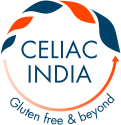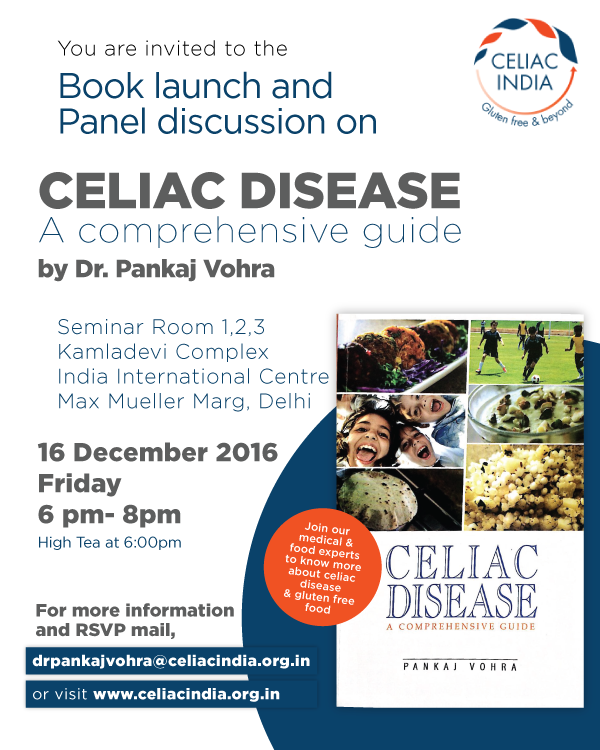FAQs About celiac disease
How can celiac disease develop in adulthood in someone who has been consuming wheat all his life without any symptoms?
A triad of factors is required for celiac disease to develop – Presence of a gene, consumption of gluten and a trigger. The trigger can occur at any age hence the disease can manifest at any age even if gluten consumption had been ongoing for a long time. Researchers so far have not been able to find out what this trigger is. Read more
Is the damage to the intestine permanent?
No. The intestine starts healing after gluten is removed from the diet. In majority of cases, the intestine heals completely in 2 years. Rarely does refractory celiac disease occur in which despite all precautions, the intestine does not heal. Read more
If I delay the introduction of wheat to my child, will it have any effect on her chances of developing celiac disease, assuming that she possesses the gene for celiac disease?
It could possibly help in delaying the onset of celiac disease and possibly create a higher chance of developing extra-intestinal manifestations of the disease.
If someone never eats gluten containing food, will he never get celiac disease?
If a person never ever consumes gluten, his chances of developing celiac disease are nil as you need to consume gluten for the body to produce antibodies to it. However given the fact that gluten is present in so many food items, it would be unlikely that no gluten in consumed.
If celiac disease runs in a family, can anything be done from preventing it to occur in a newborn baby?
Celiac disease is a genetic condition which runs in families. Whether the child develops celiac disease or not will depend on the presence of the gene, HLA DQ 2 or HLA-DQ8. One cannot alter the presence of any gene before or after birth. If the child inherits this gene from the parents, she can develop celiac disease provided she ingests gluten. Avoiding gluten during pregnancy or during breast feeding will not alter the chances of your baby developing celiac disease.
However, there is evidence that if we introduce gluten into babies’ diet early, they have a higher chance of developing celiac disease but if we introduce it in small quantities (once daily) under the cover of breast milk between 6-7 months of age, the chances are lower but still not zero.
Can I do anything during pregnancy to prevent celiac disease for my unborn baby?
Celiac disease is a genetic condition and the genes one inherits cannot be altered. But you can help your baby in terms of food allergy prevention and several other medical benefits by eating a wholesome diet, breast-feeding your baby for one year and introducing solids between 4 and 6 months of age under the cover of breast-feeding. Wheat should also be introduced under the cover of breast feeding, between 6 and 7 months of age. It appears that the duration of breast feeding is more critical in allergy prevention than just the exclusivity of breast feeding.
What is the risk of complication of other disorders once the gluten free diet is initiated?
After 3 to 5 years of following a strict gluten free diet, the risk of complications in celiacs is the same or only slightly increased than in the general population.
If the older child has celiac disease, can parents do anything to prevent it in their younger child?
Preventing celiac disease is impossible as per our understanding of this condition today. Parents could though keep in mind the following: Weaning tips – Breast-feeding your baby for one year, introducing solids between 4 and 6 months of age under the cover of breast-feeding, introducing wheat between 6 to 7 months of age under the cover of breast feeding, Rotavirus vaccine for the younger child, ensuring to test the younger child at 2 years of age and an annual clinical assessment thereafter (or earlier if there are any symptoms).

